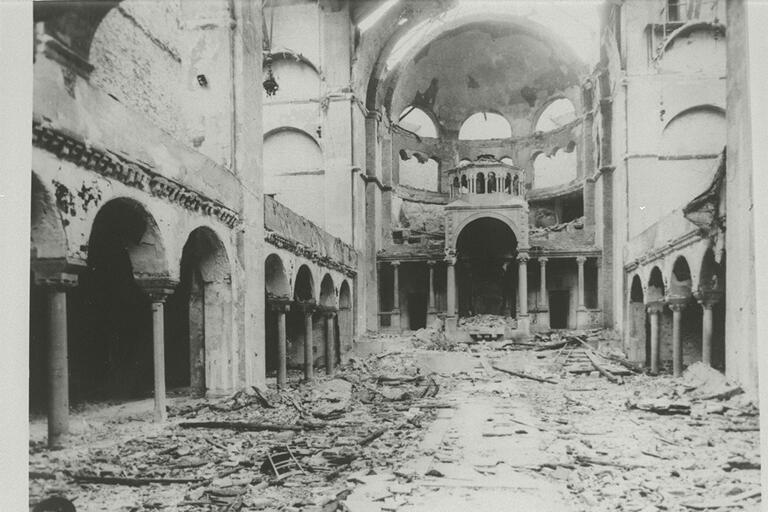I am reflecting today, as I do every year, on Kristallnacht (“The Night of Broken Glass”), which took place in 1938 and marked a grim turning point in the persecution of Jews in Germany and across Europe. I am haunted by the stories of the burning down of synagogues, the lootings of Jewish businesses, and the vandalization of Jewish homes, schools and cemeteries that occurred on this night in parts of Germany, Austria and Czechoslovakia. As I reflect on the horrors of this night, and the horrors that followed, I cannot help but find tragic parallels in the chilling stories about the Rohingya people, 687,000 of whom have been forced to flee their homes in Burma. Although no two historical events are identical and comparisons to the Holocaust often flow too freely, the accounts of our Rohingya brothers and sisters echo and resonate with me even more powerfully today.

The methods used by the Nazis are startlingly similar to those used by Burma’s army to eliminate the Rohingya people, a persecuted ethnic minority in Burma. Decades ago, the Nazis used an assassination of a German diplomat in Paris by a Polish Jew to justify what was in fact a carefully organized campaign of pogroms, just as Burmese army officials recently used an attack by a very small group of Rohingya militants on police posts to justify their massive “clearance operations” in Western Burma. The tactics we see Burmese soldiers using — looting and burning homes and businesses — are hauntingly familiar. The claims that the Jews were to blame for inciting the pogrom on Kristallnacht and that the Rohingya people were themselves to blame for the destruction and burning of their own homes are both dishonest and dangerous examples of blaming the victim.
As I reflect on the atrocities of 1938 today, I am doubling my commitment to not allow the world to turn a blind eye to a people that finds itself on the brink of annihilation, simply because they are hated for who they are. We must act and speak out decisively against the atrocities that the Rohingya people face. Please urge your Senator to support the Burma Human Rights and Freedom Act of 2017 and donate to help the Rohingya people who are living through this unspeakable persecution.
AJWS’s work in countries and communities changes over time, responding to the evolving needs of partner organizations and the people they serve. To learn where AJWS is supporting activists and social justice movements today, please see Where We Work.

